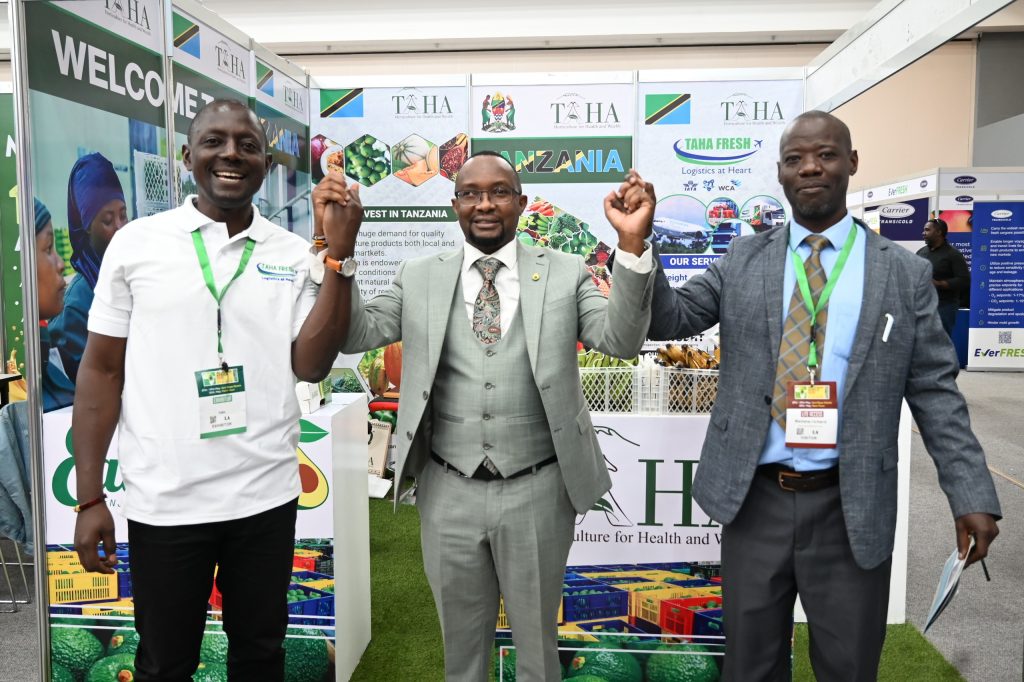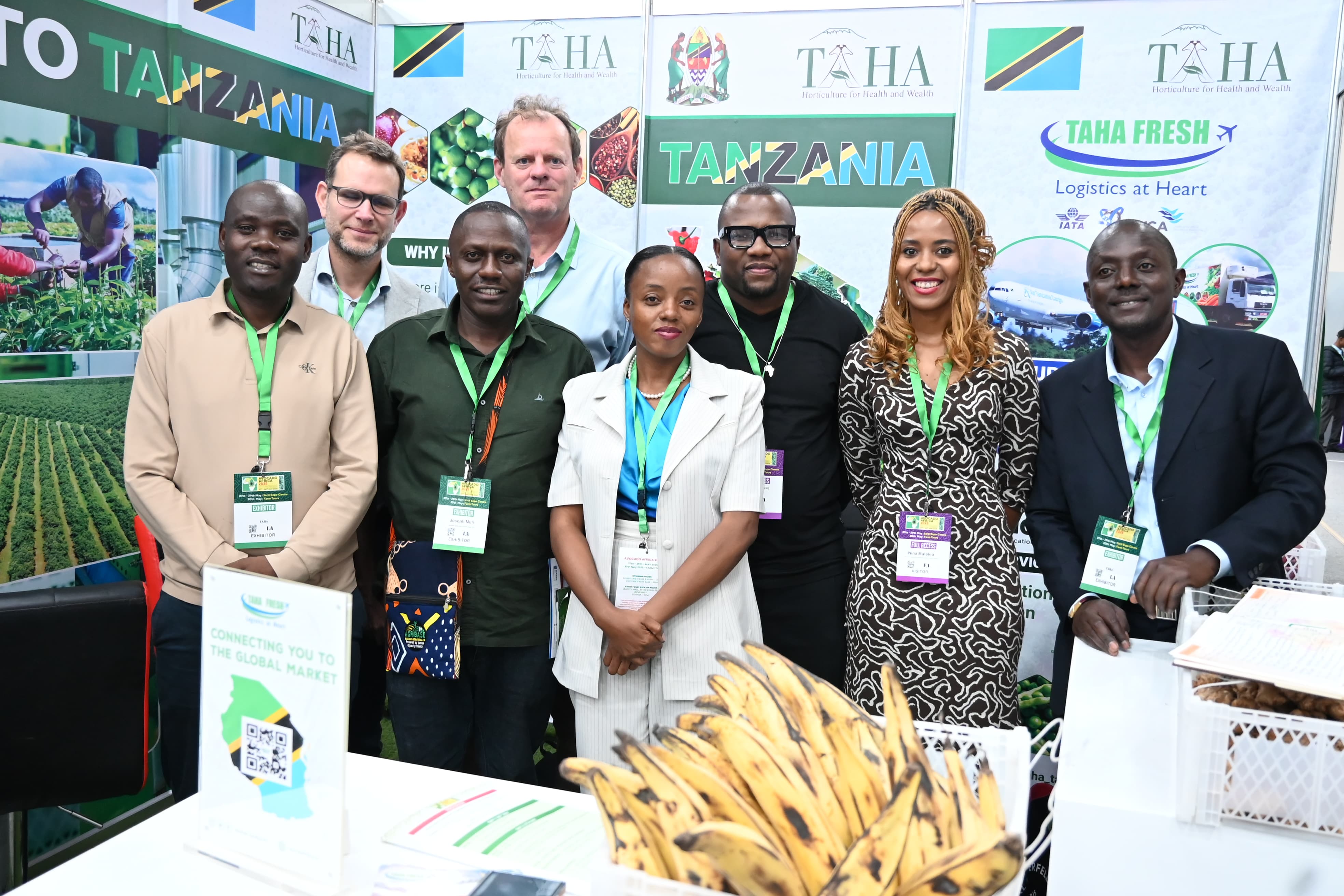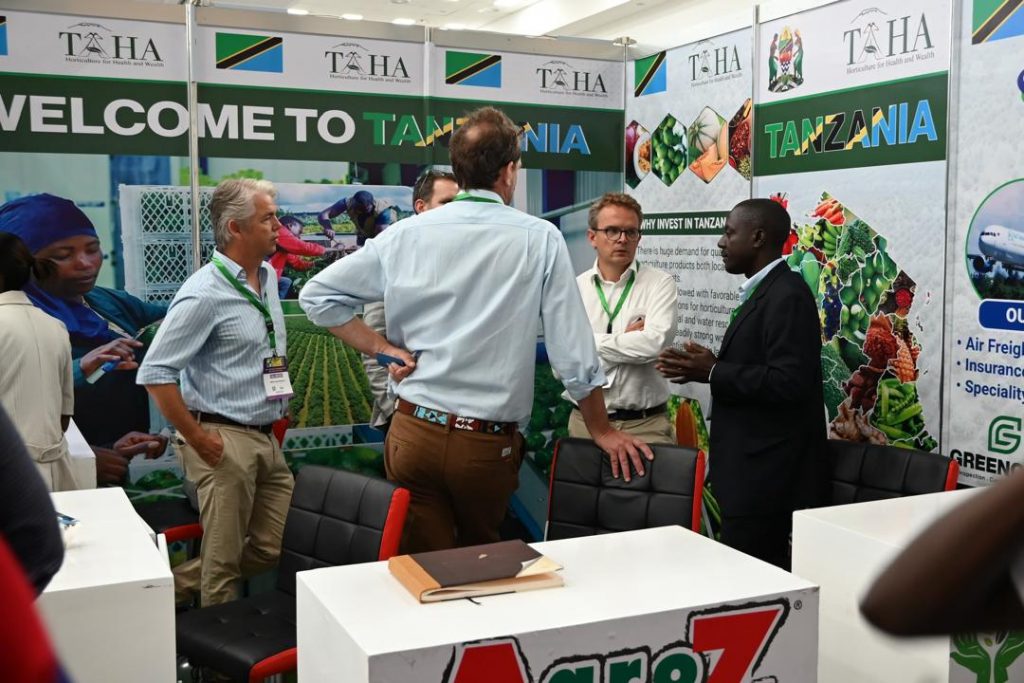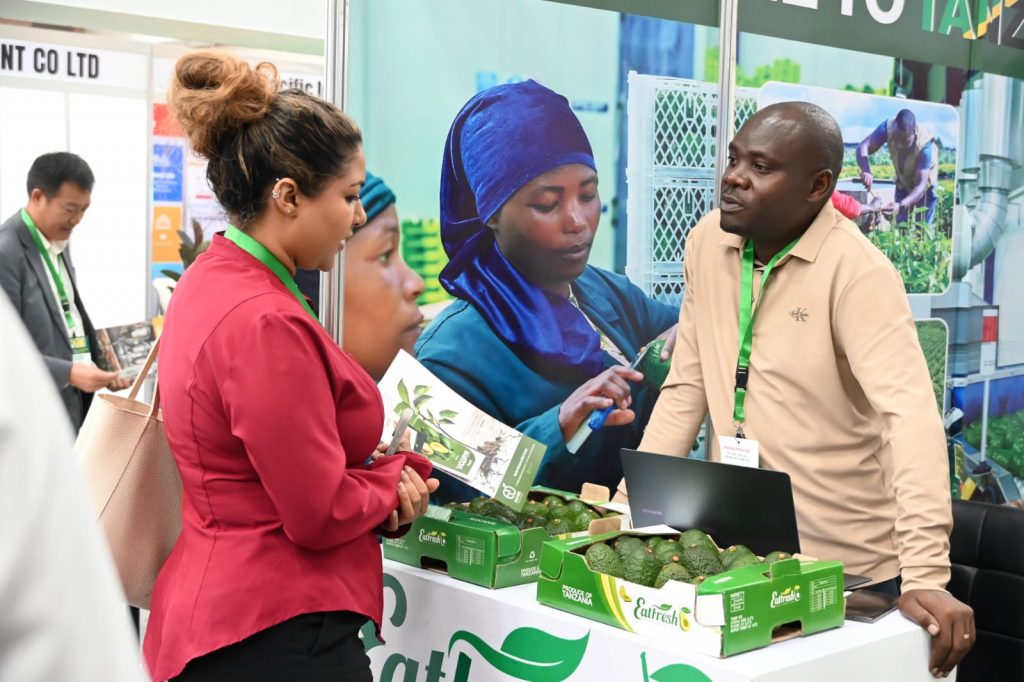
Bʏ Mᴀʀʏ Mᴡᴇɴᴅᴇ,
The horticulture industry across East Africa has seen remarkable growth in recent years, with countries like Kenya, Tanzania and Ethiopia, emerging as key players on the international fresh produce stage. While East Africa’s horticulture trade expands, markets are also tightening their demands for quality, traceability, and efficient logistics. Tanzania is moving quickly to position itself as a serious contender.
At this year’s Avocado Africa Expo in Nairobi, the Tanzania Horticulture Association (TAHA) used the platform to promote new investment prospects and partnerships in Tanzania’s horticulture industry. From farming ventures to logistics and certification services, TAHA presented a comprehensive case for why East African agribusiness players should turn their attention to Tanzania.
I spoke with Dr. Steven Tumaini, one of the association’s representatives, who laid out the opportunities and the systems now in place to support investors and exporters targeting both regional and overseas markets.
“There is no way you can access the market without having access to air freight, standards and certification,” he began as we spoke at the bustling trade fair floor, surrounded by growers, exporters, and suppliers from across Africa and beyond.

For two decades now, TAHA has positioned itself as the umbrella body representing Tanzania’s horticulture sector, advocating for growers’ interests, creating trade linkages, and working with the government to create an enabling business environment. The association supports both smallholder farmers and large-scale commercial producers of vegetables, fruits, flowers, spices, herbs and horticultural nuts, destined for local, regional, and international markets.
“Under the Tanzania Horticulture Association, we support farmers access to markets and market information, and also support investment in the country as well as certification,” Dr. Steven explained.
Building a Reliable Support System for Growers and Exporters
To achieve this, TAHA has developed a structured support system built around three key operational arms. These include Greencert Ltd, a company fully owned by TAHA that handles inspection, training, and certification services. Greencert works closely with farmers and exporters to help them comply with international standards like GlobalG.A. P and other certifications required by export destinations.
“Our CEO, Dr. Jacqueline Mkindi, established a company called Greencert. They offer farm inspection, training and audit on Global Gap certification and other different certificates required for the market,” he added.
The second pillar is TAHAFresh Handling Ltd, a specialized logistics service provider focusing on transport solutions, with a knack for fresh produce handling. Exporting perishable goods requires swift and reliable movement from farm to market, and this is an area TAHA recognized as critical for competitiveness.

“TAHAFresh offers services on air freight, sea freight, trucking, insurance, clearing and forwarding, also handle specialty cargo. They have won different awards,” Dr. Tumaini noted with evident pride.
He was keen to emphasize the inseparable connection between logistics and market access in the horticulture business. “Normally, there is no way you can break or you can access the market without having access to freight services, but also standards and certificates are very important.”
Through these services, Tanzanian growers are now accessing markets across Europe, the Middle East, and Asia, with an increasing number of exporters venturing into high-value crops like avocados, berries, herbs, and cut flowers.
A Country Rich in Opportunity
What makes Tanzania particularly appealing for horticulture investment is not only its logistical support system but also its natural endowments. The country enjoys a range of climatic zones, from cool highlands ideal for temperate crops to warm, tropical lowlands perfect for exotic fruits and vegetables.
According to Dr. Tumaini, the combination of land availability and climate makes it a prime investment destination. “There is demand for horticultural products, both in the local and export markets. Tanzania has favourable climatic conditions to grow different horticultural crops and has vast lands. Approximately 44 million hectares are now available for investment to be able to meet these demands,” he shared.

This vast, underutilized land resource opens the door for large-scale commercial farming as well as partnerships between local farmers and foreign investors looking to develop agribusiness ventures.
TAHA is also thinking globally. The association has a dedicated representative based in the UK to help Tanzanian companies access European markets and navigate the requirements of international buyers. This international outreach is a deliberate strategy to connect Tanzanian farmers to higher-value export destinations while ensuring they meet the strict quality and food safety requirements demanded by global buyers.

Inviting Kenyan and Regional Investors
One of the most compelling messages TAHA brought to the Avocado Africa Expo was an open invitation to Kenyan agribusiness entrepreneurs, logistics providers, and input suppliers to explore opportunities in Tanzania’s horticulture sector. The call for regional partnerships comes at a time when East African integration efforts are intensifying and cross-border investment flows are being actively encouraged.
“We want, business men and women from all over Africa ,Asia, Europe and America, to come and grab that opportunity in our country,” urged Dr. Tumaini.
Beyond farm-level ventures, Tanzania offers attractive opportunities in agro-processing, cold chain infrastructure, research partnerships, and input supply chains, areas where Kenyan businesses have developed strong expertise. According to Dr. Tumaini, collaboration is both welcomed and supported through official channels. “They can come and register as TAHA Members to also get supported to invest in the country,” he added.
TAHA’s presence at the Avocado Africa Expo reflected a growing appetite among East African economies to work together, share resources, and jointly build value chains that can compete on the international stage. While facilitating market access, certification, and logistical services, Tanzania’s horticulture sector appears well-positioned to attract meaningful investment while playing an increasingly important role in feeding both regional and global markets.

